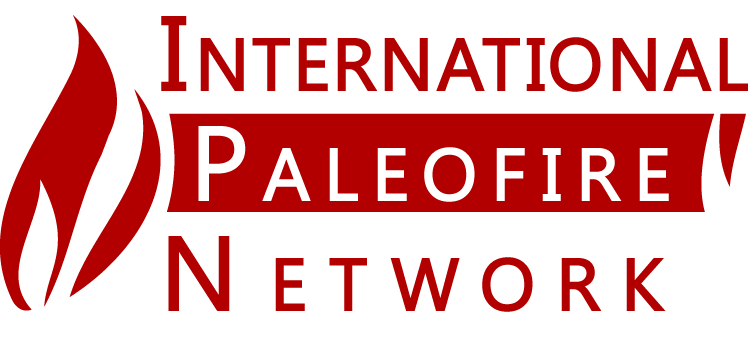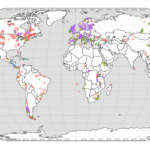A special issue of Fire (ISSN 2571-6255) is open for submission with GPWG members Julie Aleman, Olivier Blarquez and Boris Vannière as guest editors. Follow that link for all relevant information and in the post bellow http://mdpi.com/journal/fire/special_issues/paleofire
 |
Deadline for manuscript submissions: 31 January 2019
Dear Colleagues,
Human–fire interactions have, in many parts of the world, a long-lasting and pervasive influence on natural ecosystems. The naturalness of those ecosystems is thus questioned until evidence of human action on fire regimes have been unequivocally proven by solid scientific techniques. Human actions on long-term fire regimes may include active fire ignition, suppression, and all vegetation cover modifications that impact the quality, quantity or connectivity of fuel in the landscape. These actions also include the modifications of fire ignition probabilities via the alteration of the global carbon cycle and climate.
These above-mentioned influences are highly dependant on the spatial and temporal scales that are studied, and, more importantly, depend on societies and their land-use practices. Different disciplines can bring insights into the long-term interactions of fire and human, such as (paleo)-ecology, archaeology, biogeography, modelling and all the fire history related sciences. A better understanding of land uses with fire and their influences on long-term ecosystems dynamics will help to assess whether current and future conditions will diverge from previously experienced ecosystem states. The implications of those finding are indeed important for ecosystem management in a context of mitigation of biodiversity loss, promotion of ecosystem resilience to global change and preservation of ecosystem functions and services, all of which being potentially concerned by worldwide fire occurrences.
In this Special Issue, we seek articles dealing with human modification of fire regimes, human fire management and practices, and the various processes associated with this relationship at temporal scales ranging from millennia to decades. Articles dealing with aboriginal fire uses, assessment of long-term influence of different societies on fire regimes and how this knowledge could be used for restoration, conservation or management of ecosystems are highly welcome.
Dr. Julie C. Aleman
Dr. Olivier Blarquez
Dr. Boris Vannière
Guest Editors
Manuscript Submission Information
Manuscripts should be submitted online at www.mdpi.comby registeringand logging in to this website. Once you are registered, click here to go to the submission form. Manuscripts can be submitted until the deadline. All papers will be peer-reviewed. Accepted papers will be published continuously in the journal (as soon as accepted) and will be listed together on the special issue website. Research articles, review articles as well as short communications are invited. For planned papers, a title and short abstract (about 100 words) can be sent to the Editorial Office for announcement on this website.
Submitted manuscripts should not have been published previously, nor be under consideration for publication elsewhere (except conference proceedings papers). All manuscripts are thoroughly refereed through a single-blind peer-review process. A guide for authors and other relevant information for submission of manuscripts is available on the Instructions for Authorspage. Fireis an international peer-reviewed open access quarterly journal published by MDPI.
Please visit the Instructions for Authorspage before submitting a manuscript. The Article Processing Charge (APC)is waived for well-prepared manuscripts submitted to this issue. Submitted papers should be well formatted and use good English. Authors may use MDPI’s English editing serviceprior to publication or during author revisions.
Guest Editors information:
|
Dr. Julie C. Aleman TERRA Teaching and Research Center, BIOSE Department, Gembloux Agro-Bio Tech, University of Liège, Belgium
Website Interests:grassland and savanna ecology and conservation; tropical biogeography; spatial and temporal ecology; fire and disturbance ecology; climate and land-use changes |
|
|
Dr. Olivier Blarquez Département de Géographie, Université de Montréal, Montréal, QC H3C 3J7, Canada
Website Interests:paleoecology; biodiversity; fires |
|
|
Dr. Boris Vannière CNRS, Chrono-environnement UMR 6249, MSHE USR 3124, Université Bourgogne Franche-Comté, F-25000 Besançon, France
Website Interests:Paleoecology, paleohydrology, land cover and land use changes, paleofire regime, fire ecology and fire practices |

